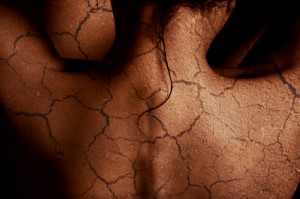Dry skin can feel uncomfortable, often itching and flaking. Millions of people cope with excessive dryness, which can be exacerbated by harsh cleansers, low humidity, UV exposure and even some medications. When skin is dry, a damaged skin barrier is usually involved. This results in the inability of skin to retain moisture and prevent its loss. Today, 4 tips to help you care for your dry skin.
Tip #1: Moisturize, Moisturize, Moisturize
Many people either neglect to use moisturizers on their skin or they choose formulations that are not suitable for them. Using the right moisturizer can help your skin retain water and prevent the depletion of the material between your skin cells. Plus, many moisturizers include ingredients such as antioxidants that can help slow the aging of your skin.
The key to using moisturizers (besides choosing the right formulation) is to apply them generously and frequently. Look for products like La Roche Posay Iso Urea. Urea is a natural moistuirizing factor (NMF) that is often depleted in dry skin conditions. It works by increasing the moisture retaining capacity of skin. The addition of lipids such as ceramides, triglycerides and other emollients helps to replenish the body’s own lipids in the stratum corneum or top skin layer. They help to stabilize the barrier function of the skin, leading to increased skin moisture.
Tip #2: Exfoliate Regularly
Often, dry skin has a tendency to build up on the skin’s surface. This lack of cell turnover can eventually cause your skin to look flaky and feel itchy. Exfoliation with alpha hydroxy acids such as glycolic acid or lactic acid (as in Lac-Hydrin) can help to bolster your skin’s ability to retain moisture. Ideally, use an exfoliant daily if your skin suffers from dryness.
Tip #3: Avoid Harsh Soaps And Scrubbing
Despite claims on the packaging, many soaps can be extremely harsh on your skin. By stripping away your natural lipids, they can exacerbate existing dryness. A lot of people mistakenly think that the harder they scrub, the more dry skin they can remove. However, harsh soaps and skin cleansing products may contain drying ingredients. In addition, spending a lot of time in water (long baths and showers) can also dry skin futher.
Look for cleansers that are formulated to be gentle on your skin. Don’t scrub skin vigorously and avoid soaking in the tub for long periods.
Tip #4: Apply Sunscreen
One of the harshest influences on your skin is sun exposure. If you’re exposed to the sun’s UVA and UVB rays without protecting your skin, those UV rays can damage and dry your skin. The more damaged your skin becomes, the less capable it is of retaining moisture. You should be applying a well formulated sunscreen daily, year round as the sun’s UV rays are prevalent even in the winter.
Eliminating Dryness
Dry skin is a common condition and millions of people deal with the symptoms. Minimize sun exposure and long baths and showers. Proactively use moisturizers, exfoliants, gentle cleansers, and effective sunscreens. A well functioning lipid barrier can help your skin to retain moisture more effectively. Improving your skin and eliminating excesssive dryness are within your control.


